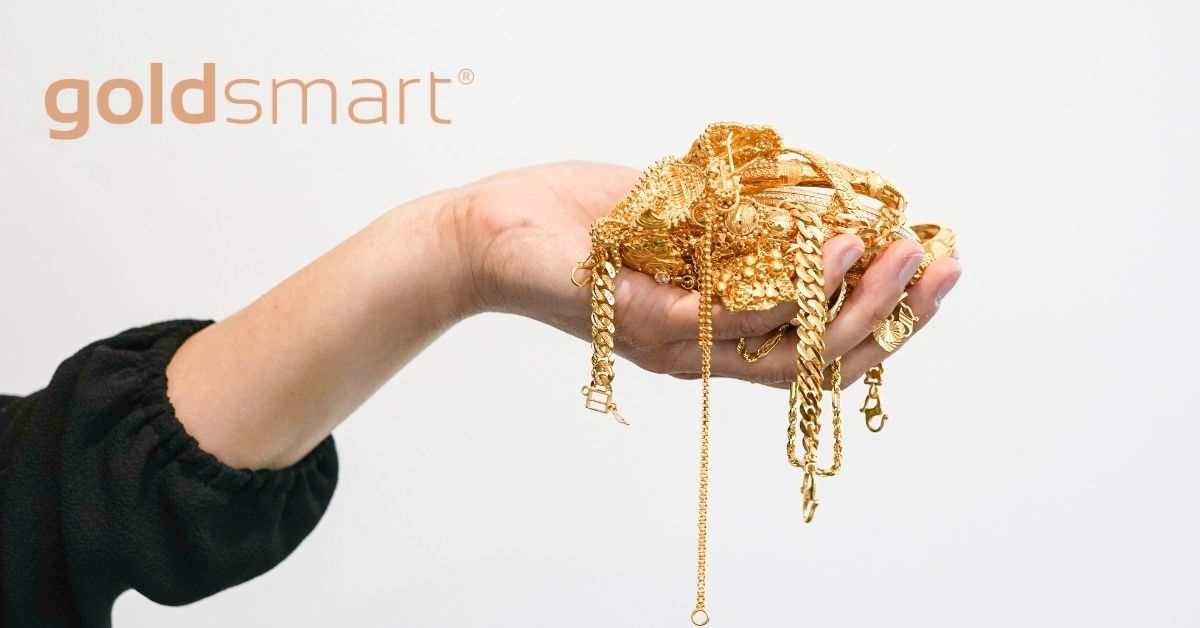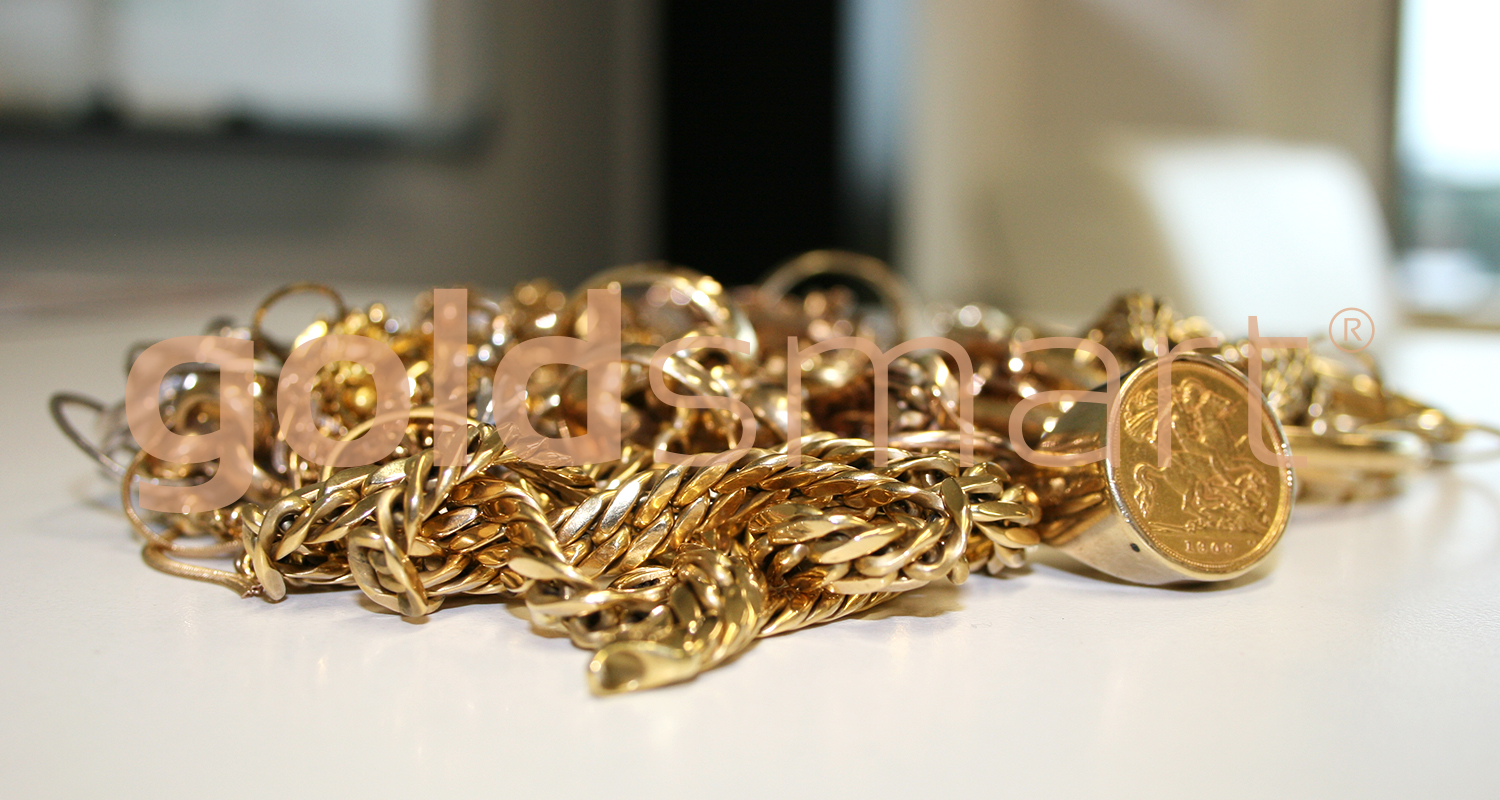
With the price of gold remaining well in the upper ranges, even in 2021, anybody who has some spare gold sitting around not doing anything for them is in a good position to sell it for a sizable amount of cash. Most folks think that viable gold should be in the form of coins, medals, or fine jewellery. However, believe it or not, junk gold can sell just as well. Known as scrap, broken gold, leftovers, spares, or similar, anything that is made of solid gold can still be sold for resale value and secondhand gold pricing. You won’t be paid exactly the same price as the spot value seen on TV when watching the business channel, but even 10-carat gold is worth a few hundred dollars today, depending on the size and weight.
What Counts as Scrap Gold?
Scrap gold can include just about any broken or leftover part of jewellery, even damaged items, as long as the part is made of solid gold. Gold-plated items will not be considered as they are simply not gold at all. Instead, these items are made with a base metal and a very thin sheen of gold attached to the base metal using a chemical reaction or electrostatically. However, where the item is sold gold, even if broken, crack, missing parts, or the single piece leftover of a pair, the gold will sell as part of the gold consolidation process that put the precious metal back into circulation when melted together with other gold. Scrap gold is a big business; even microbes are being used to pull out gold from garbage and e-waste.
How Does Scrap Gold Sell?
There are two main channels that scrap gold goes through. The first, which is far more common, is a basic gold buyer. This type of business (or individual) buys anything that has solid gold from 10-carat to 24-carat quality. Because these businesses don’t have any tools or facilities by which to smelt gold bought, they have to resell it to a consolidator. That means they are only making a profit on the margin between what they buy the scrap gold for and what they sell it at in terms of price point. No surprise, basic gold buyers try to lower the price they pay as much as possible to gain a profit versus what they sell it for to a consolidator. Consolidators buy large amounts of gold to melt all at once, so they are not keen on buying from a singular gold buyer who tries to charge a high price; they just go to someone else. So basic gold buyers are pressured to gain their profits from personal sellers versus working the market hard when they sell in turn.
The consolidator is a gold buyer who, as mentioned above, buys large lots to smelt them together. Consolidators have the equipment and means to melt and reform gold into bullion bars, which they then sell in bulk to the industry as well as investors seeking large amounts of gold for value. The consolidator typically works as a business-to-business buyer, rarely taking gold from individuals unless it is a large lot. However, there are industry players who are both gold buyers and consolidators in one. These businesses cut out the two-layer approach, which allows them to give better pricing to personal sellers and consumers looking to cash out their broken and scrap gold.

Taxation Generally Does Not Apply
Normally, for taxes to apply to your gold-selling in New Zealand, you have to be operating as a business or with the intent to sell the gold again. This isn’t the same as in other countries, but the New Zealand tax code recognizes that the private individual has an occasional need to sell personal property and gold from time to time. It is where someone is regularly buying and then reselling gold to make a consistent and repeat profit that business or franchise taxes would kick in and apply. So, in practice, a one-off sale of scrap gold originally bought for personal use or a gift is not going to qualify. However, folks need to be careful here; repeatedly selling scrap gold every few months is going to start to look like a for-profit, business venture, and that can definitely catch the eye of tax collectors. With today’s computers, bank record scanning and reporting required, it’s very hard to avoid scrutiny when the taxes do apply, so don’t risk it. If you’re going to be making money finding and selling scrap gold regularly, accept that taxes will be part of your operating cost then.
You’re Also Helping the Environment Selling Scrap Gold
The environmental benefits of recycling gold have a secondary plus for everyone too. When you sell scrap and unwanted gold in New Zealand it is far more efficient than mining new gold from the ground. A gold mining operation typically requires large amounts of energy and highly toxic chemicals (including cyanide, lead, and sulfuric acid). It can take around 1 ton of grade ore to extract as little as 5 grams of fine gold, a considerable effort with permanent impacts to the earth and surrounding land.
A Prime New Zealand Broken Gold Buyer
The condition of worn, broken, or damaged gold doesn’t matter when selling your scrap items to Gold Smart because we are basically recycling gold. Because Gold Smart works on both levels of a buyer and consolidator, we are able to price gold for resale competitively, and usually, our price offers are some of the best available for personal sellers in New Zealand. So, if you are wondering what that old gold jewellery in your drawer is worth, the price of resale gold in general, comparative gold coin values on the market, or you simply want to learn more about how simple it is to create significant amounts of new cash with scrap gold sales, then call the friendly and professional gold buyers at Gold Smart today! After your first sale with us, you’re probably going to be asking yourself why you didn’t start sooner.